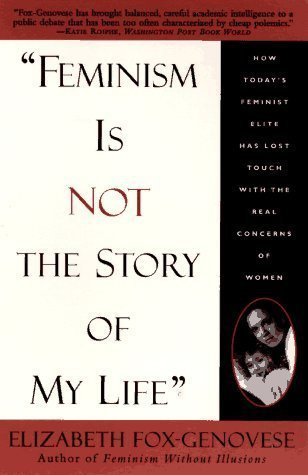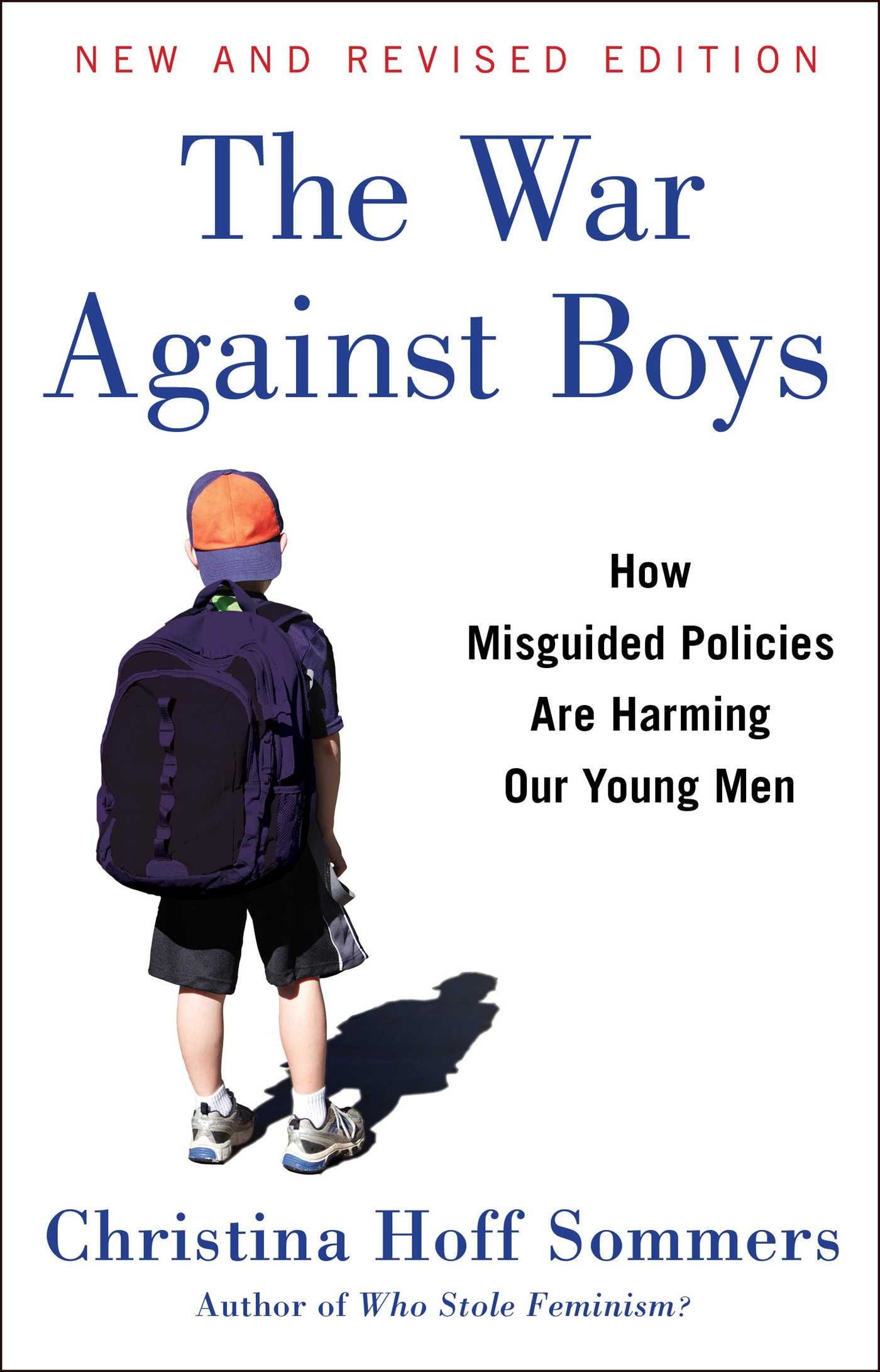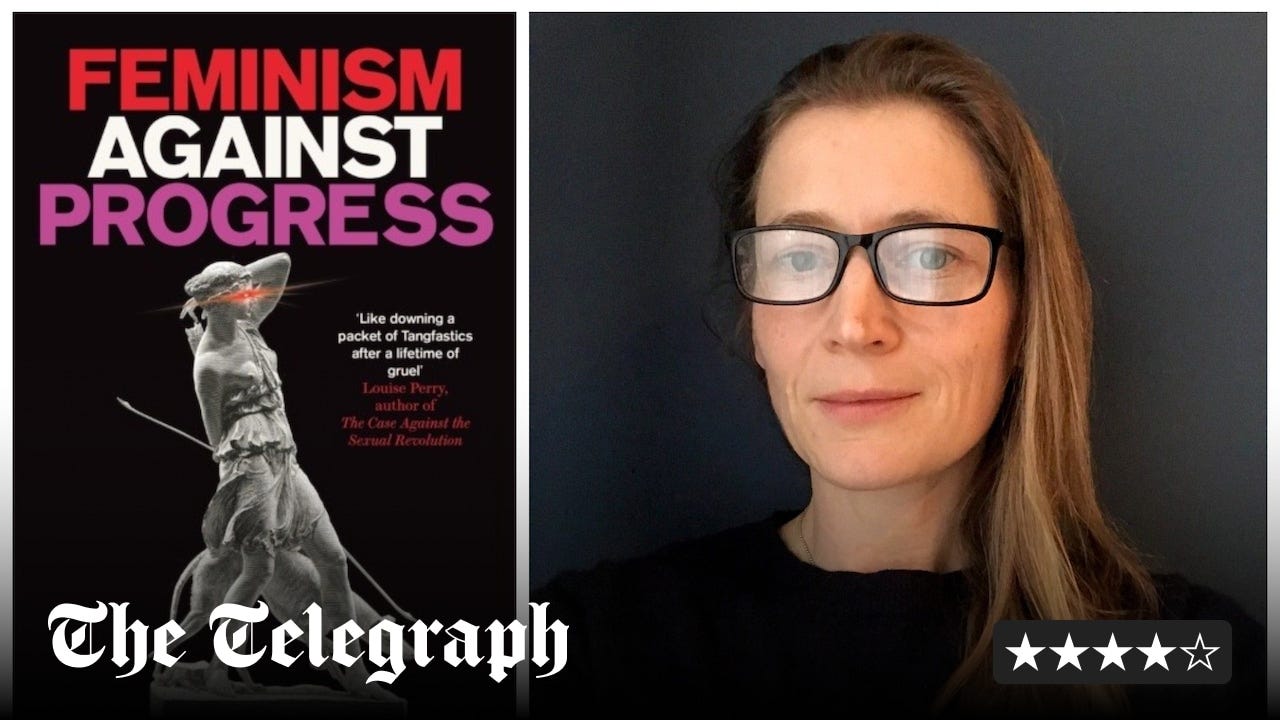“In short, women, in general, as well as the rich of both sexes, have acquired all the follies and vices of civilization, and missed the useful fruit … Their senses are inflamed, and their understandings neglected; consequently they become the prey of their senses, delicately termed sensibility, and are blown about by every momentary gust of feeling. They are, therefore, in a much worse condition than they would be in, were they in a state nearer to nature. .”—Mary Wollstonecraft, A Vindication of the Rights of Woman, Ch. 4
Despite being a successful mother, wife, and career woman (and I ordered that deliberately) who has managed to “have it all” in the 21st century, I have also found myself deeply displeased with the direction that the Women’s Movement has taken in the past several decades. Feminism has undergone a profound transformation, and a vast portion of that change has only been for the worst. What began as movement that brought about basic legal reforms to allow women the right to hold our own property, control our own money, and have custody over our own children as our husbands had always possessed has been transformed beyond all reasonable recognition into a movement that can only be described as anti-family, misandrist, anti-nation, and crucially as anti-woman.
Equal rights and basic legal recognition for women within a the familial and community setting has now become a libertarian and transhumanist movement.
This shift has occurred over the course of my 54-year lifetime, and while a more liberal feminism has brought about some positive changes to women’s lives (I certainly liked my job) it has also created tensions within our Western societies. A growing disillusionment with the modern landscape of gender relations, career-centric life paths, and disconnection from meaningful community life has led many to question whether the current trajectory of feminism truly serves the long-term well-being of women. I can say that I unequivocally believe this to be true and that the Women’s Movement must fundamentally change if it is to survive and be a constructive force within Western societies.
This new framework for the Women’s Movement is something I have provisionally coined New Feminine Politics. In this introduction I am going to lay the groundwork for a series of future articles exploring each precept in greater depth.
This proposal seeks to reorient the Women’s Movement away from its increasingly individualistic and destructive tendencies and toward a more communitarian and national vision. New Feminine Politics affirms the intrinsic value of family, community, and the nation as essential to the flourishing of women and the people we love. It calls for a reclamation of feminine power rooted not in autonomy from traditional institutions, but in a deep commitment to the collective good of society where our voices are viewed as a valuable constructive force.
At the core of New Feminine Politics is the belief that women should not be coerced any one path in life but that we should use a core set of values to orient ourselves within daily life.
1. Loyalty to the Nation and the Republican Motherhood
“If we don't stop immigration—this torrent of immigrants coming in—we're not going to be America anymore … “—Phyllis Schlafly
My first core precept of New Feminine Politics is the centrality of the nation as opposed to the individualistic, atomized, way that we are currently encouraged to live in the Western world. New Feminine Politics insists that women, like men, have a vital role in the preservation, protection, and promotion of the nation-state as an essential space for communal life. As women our voices are crucial in giving moral reinforcement to oppose demographic, cultural, and institutional replacement by non-Western peoples and anti-Western globalist groups.
This tradition of moral authority and a duty to the nation is best embodied in my own nation’s tradition of Republican Motherhood. During the American Revolution American women took up many of the roles previously filled by men both at home and in our communities. As women took up these roles the idea arose that educated, virtuous, and principled women are necessary for the success of families and therefore of entire nations. This is an idea that New Feminine Politics seeks to rekindle.
2. Rejecting Radical Individualism
“Now, there's a desire for order, authority coming from a feeling that society has gone too far to the side of individualism and liberalism.”—Marion Marechal-Le Pen
In connection with championing the nation it is also a key precept of New Feminine Politics to reject the radical individualism and atomization that have come to dominate Western societies. Individualism as the highest good in the West has led to incredible competition between men and women, selfishness over resources, a preoccupation with a shallow definition of happiness (getting whatever I want when I want it!), and the destruction of tolerance for strife and struggle. Individualism must be curtailed in order for social institutions to survive, and women have an outsized responsibility in this calling to rebuild community.
I will preempt objections by saying that I certainly believe that I am entitled to own property, hold my own money in my own bank account, and to come and go as I please from my home or workplace. But none of these basic rights women have earned necessitate the level of individual selfishness we have come to see in the West.
Instead, New Feminine Politics calls for a return to the prioritization of family, community, and civil society as the true sources of meaning and fulfillment. Women should not be isolated from their cultural roots or separated from the relationships that ground us in love, loyalty, and mutual support. Women are more collectivist than men and in general less individualist, but this nature has been sidelined in favor of competing with men and each other. New Feminine Politics calls on women to abandon a fixation with individualism and autonomy at all costs and to reinvest in our societies and relationships. It is through these communal ties—through embracing the richness of interconnected life—that women will truly find their place in society.
3. Embracing the Family
“Family life was and always will be the foundation of any civilization. Destroy the family and you destroy the country.”—Erin Pizzey, CBE, founder of British women’s shelter movement Refuge.
Contrary to the dogmatism that the modern feminist movement promotes about how to be content, women are more unhappy than we have ever been. Education and career centric lifestyles have led to an incredible spike in depression and loneliness among women. We do not find true emotional or physical support (like when we’re sick or pregnant) from our boss or a corporation, and yet women are being pushed into this working world. According to Joyce Harper, a Professor of Reproductive Science at the Institute for Women’s Health, University College London, women are putting off marriage and children in favor of focusing on their careers. To compound this issue an astonishing 30% of Americans (most of them women) are joining the growing “no-contact” movement that advocates severing ties with family members for what are usually petty and downright selfish reasons.
Instead, New Feminine Politics champions the married family as a cornerstone of women’s happiness and fulfillment. This vision supports the creation of vibrant family units that provide stability, mutual care, and emotional richness—a contrast to the alienating grind of contemporary work culture. I want to preempt some of the complaints that will arise from other women that I am telling them to “just get married and have babies.” Though I do think that is a great idea there are other ways to engage with our families. Women can be the supportive aunt who helps with the nieces and nephews, the caretaker daughter of elderly parents, or the simple sounding board for our struggling siblings. Women find emotional contentment and happiness within family structures, a common sense position backed up by Dinah Hannaford’s 2022 book “Opting Out: Women Messing with Marriage around the World.”
3. Reclaiming Sexual Propriety
“Feminism has led the way in demystifying personal relations, forcefully insisting they are political to the core”—Elizabeth Fox-Genovese
The advent of hookup culture, internet dating, and the dismantling of traditional norms surrounding relationships has created a battleground between the two sexes. Women have been encouraged to behave “like men” (or rather, a false caricature of men) by being as sexually unmoored as possible. World famous authors like Germaine Greer have championed ‘simple’ sexual freedom while others such as Betty Friedan have been notably pro-pornography, and a growing litany of “sex positive” feminists such as Susie Bright and Gayle Rubin have come to champion a lifestyle that is so profoundly destructive it would lead to the complete dissolution of society.
Behaving like the caricature of men radical feminists have created, (i.e., sleeping around carelessly) lowers the success rate of our marriages, can affect our ability to paid bond. The data suggests promiscuity leads to lower self esteem in women and a less happy life. Sexual impropriety and ‘openness’ are damaging in other ways, too. More and more women are consuming pornography, a habit that contributes to skewing our perceptions of both our own sex and of men.
None of this is to say that women are not sexual beings. We very much are. Intimacy is as important to us just as it is to men. I am not suggesting we paint a vision of women as angelic sexless beings. Instead, New Feminine Politics advocates being honest about the importance of sexual connections and being choosey with how we engage with one of the most profound mysteries of being Human. New Feminine Politics opposes the widespread availability of pornography, any encouragement of hookup culture, and the promotion of meaningful personal connections.
4. Recognizing Our Partners: Our Men
“But being a boy is not a social disease.”—Christina Hoff Sommers, The War Against Boys.
As women, we love men! Our fathers, husbands, sons, and grandsons matter immensely to us. But our society has left men behind; and our political class—one very dedicated to the radical feminism of our time—has decided that men (our men!) are a problem to be dealt with rather than Human beings with their own collective issues and needs. The success, happiness, and health of our men is directly related to our safety, prosperity, and happiness as women.
Yet, men are committing suicide at four times the rate of women; and men represent 70% of suicide deaths in the United States. In the United Kingdom the male suicide rate is three times that of women, and in the European Union men are 77.1% of all suicides. These suicide rates persist despite the fact that 60% of men seek mental healthcare prior to committing suicide in the United States, and studies show that mental healthcare providers have a preponderance to misdiagnose men.
Modern education is geared toward girls. Men are much less likely to enroll in college in part due to anti-male sentiments, and women (or rather feminist dominated institutions) have begun pushing men out of entire fields such as medicine. Male social circles are shrinking. Men have fewer friends. And their networking opportunities are dwindling.
Male incomes are also declining, something strongly connected to male self-confidence and mental well-being. We (women) also expect men to continue to be our protectors and breadwinners regardless of our own incomes or ‘strengths.’ For this reason alone, we should care about the wellbeing of our men.
To preempt yet more feminist retorts: I am not suggesting that women engage in mothering our husbands or fathers. We do not need to carry their entire emotional weight. Instead, I am suggesting we care about men’s issues as much as they clearly care about ours. I have never sat around a table where the male suicide crisis was brought up by another woman, but I have sat around tables my entire life where men are deeply concerned and disgusted by sexual violence or even simple social mistreatment against women.
Men will vote for a tough-on-crime candidate because they worry about the safety of their women and children. New Feminine Politics advocates that women use our political voice and our votes to force politicians to care about men’s issues as well.
5. Representation of Women and Women’s Issues
“this class of women currently has the mic. I suspect many will fight tooth and nail to keep it, using every form of overt and covert political street-fighting at their disposal. In pursuit of their class interests, they’ll use weight of numbers across education, NGOs and corporate HR departments to tip the scales in favour of the legal fiction that sex doesn’t need to exist.”—Mary Harrington, Feminism Against Progress.
Women, feminine nation-and-community-oriented women, must have an explicit voice in the political and policymaking process. Currently large feminist organizations, left-wing political parties, social media influences, the Kardashians, and the global establishment fill the role of taking account of women’s interests. The problem is that these organizations and groups are no longer promoting the interests of women within the context of modern feminist ideologies. Feminist groups have had a hand in the promotion of transgenderism (the abolition of men and women), the rise of the single mother, the decline in economic opportunities for our husbands and sons, the promotion of social ills such as abortion, mass immigration, and they have facilitated the Great Replacement.
Rich bourgeois women, as Mary Harrington referred to upper class women in her seminal work Feminism Against Progress, are assumed to speak for all women. They do not.
Working and middle-class women cannot afford a retainer of immigrant nannies and house keepers. They do not gain substantial social clout for insisting our sons are actually girls. They are the ones least likely to marry and the most likely to be unhappy. And it is their husbands and sons committing suicide much more than those of rich bourgeois women. These same radical feminists and their associated institutions have captured all political debate and directed it away from what is the mass of normal women in the West.
New Feminine Politics is about finding a place at the table for the normal working women of the nation and the West—women who are trying to balance motherhood and career, stay at home mothers in the lower classes, women who are trying to make marriages work, and women who have concerns that go beyond the petty narcissism of the wealthy elite.
This is the vision of New Feminine Politics—a feminism that is not divorced from tradition but rooted in the values that support families, communities, and nations. It is a vision that sees women not as isolated individuals but as integral parts of the greater social fabric, united with men in the shared responsibility of shaping a better world. By redefining the feminist cause through these principles, we can build a movement that serves the long-term welfare of women, offering them not just freedom, but fulfillment, meaning, and connection.
Support White Papers:
White Papers is a reader-supported publication. To receive new posts and support my work, consider becoming a free or paid subscriber.
Find us on X, Telegram and YouTube.
Contact us: info@whitepaperspolicy.org
Zelle: whitepapersinstitute@protonmail.com
Linktree: https://linktr.ee/wppi
Snail Mail: White Papers Policy, PO Box 192, Hancock, MD 21750















It is entirely an urban issue that came into being when the 50% of general population shifted from farming to urban jobs in 1890 in America. Before then, women have a lot to do to keep the farm going while raising family that will carry on the farm work while providing for their aged parents. Urban jobs created more leisure while also bringing new uncertainties such as getting food when your entire income is dependent on a corporation who can fire you at will (unlike a slave who must be kept in reasonable good condition to recoup the master’s capital investment). Both are at the roots of feminism.
In the agricultural age, it was well-understood that men are the captains and women are the lieutenants. The captain establish the good order and provide protection and process while the women enforce the order and minister to the dependents from the family stores. So, the women felt engaged and useful as they works and engaged with other women to ensure their families’s survival. Urban life brought greater leisure and ease, but also brought uncertainty with regard to husband’s status and independence and ability to protect them and to put food on the table. It also created confusion about the woman’s role in this new urban life. That is where it all started.
Women were always effective lieutenants, there is no doubt, especially with the Northern Europeans who must look after families and kingdoms while husbands are gone for months and years raising, warring, and trading. They felt useful in carrying out this ancient role. Now? Very doubtfully, for both men and women.